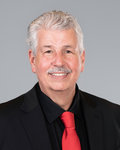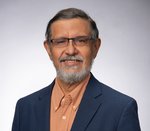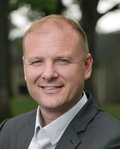



Clark County Council’s most urban district will feature a new face next year, as three candidates seek the position that will be vacated by current councilor Temple Lentz at the end of the year.
During a candidate forum hosted by the League of Women Voters of Clark County on June 23, candidates Doug Coop, Hector Hinojosa and Glen Yung answered questions about county issues.
Yung said he was truly a nonpartisan council candidate, noting the 2021 vote on a county charter amendment removed party declarations from council candidates.
“I am somebody that is tired, just like everybody else in our community, of all the political posturing that we see, both on the local and the national level,” Yung said.
Hinojosa said he would use the knowledge he learned as the founder and vice-president of the homeless housing organization Community Roots Collaborative to implement the Clark County Housing Options Study and Action Plan. He added he had been involved in roundtable discussions regarding law enforcement, where chief issues of miscommunication, budget shortfalls, as well as blurred lines between enforcement and addressing mental health were identified.
Coop said his priorities, if elected, would focus on homelessness, public safety, traffic relief and not increasing taxes.
Jail and taxes
Clark County Council District 1 encompasses the western half of Vancouver, divided to the east by Interstate 205, and includes the area near Vancouver Lake. Since the district includes the location of the Clark County Jail, candidates were asked how they would address the aging and understaffed facility.
“If anybody has toured the jail, they will know how abysmal the conditions are there, and how desperately we need a new facility that’s going to provide all of the opportunities that we need to be a safe and welcoming community,” Yung said.
Yung said an increase in crime is in part due to the jail, which lacks the staffing required to house those who have been arrested. He said the county needs to be more responsible with funding, such as taking the state-allowed 1% increase on the county’s general fund levy.
Coop favors a “modular projection” on the jail, which would make improvements to the facility in a piecemeal approach.
Hinojosa isn’t sure whether the county could build a new jail in the near future. He favored a focus on the county’s work-release program to alleviate capacity issues in the current facility.
On balancing services with taxes that the county levels, Coop believes property taxes are too high.
“I want to get in there and investigate how these funds are being used,” Coop said.
Hinojosa said the county needs to be realistic about its needs and figure out whether an increase in taxes is needed.
“Nobody likes property taxes, but we need to do what’s necessary to improve our community,” Hinojosa said.
Yung again touched on the general fund increase, which he said is a way to mitigate the level of inflation experienced both during a normal year and during the current accelerated increase.
“We have to invest in the things that we need in our community and take the small increases that we can just to keep up with our costs,” Yung said.
Constituent communication, civil council rapport
Hinojosa said public outreach isn’t new to him as he was a founding member of the League of the United Latin American Citizens of Southwest Washington more than a decade ago.
Yung stresses a proactive response to constituents when garnering feedback.
“A true leader will go to the community and not wait for the community to come to them,” Yung said.
Coop said his campaign has been working to collect contact information from residents in order to be able to communicate with them when council issues arise.
“When I stand in front of the council I can say, ‘you know what, I’ve got all these names right here, and this is what they said,’” Coop said.
On civil discourse, Yung said he understands differences of belief because of his experience in a multicultural family.
“We have to learn to understand and have patience with one another. We have to learn to work together and build on the similarities, build on the common ground that we have,” Yung said.
Coop said the council has experienced a lot of “disunity” in the past years. He said he has experience with diversity of opinion through decades of involvement with his faith community.
Hinojosa welcomes the potential for a variety of opinions to come up with solutions.
“I think that if we listen to each other, find what the problem is that we’re trying to solve, then we can actually move forward to solve that problem,” Hinojosa said.
Growth management and infrastructure
Coop said he’d rely on feedback from his constituents to make land use decisions.
“Whatever we do, I’ve got to hear the voices of the people in my district,” Coop said.
Hinojosa said protection of farmland and providing affordable housing needs to be handled in a collaborative manner.
“As the last two and a half years have proven, food supplies and the necessities of daily life are not as stable as we have imagined,” Hinojosa said.
Yung mentioned Washington state ranks at the bottom for states with enough housing units per household, which has led to a severe shortage of housing and increased housing costs. Compounded with the protection of existing lands, he said the county faces a challenge to find a balance.
“That is only going to happen if we have people that are willing to work together,” Yung said.
Hinojosa said the county needs to be careful so development does not surpass the needed infrastructure.
“Sprawled housing does not produce the tax base that pays for infrastructure needed to support that growth,” Hinojosa said.
Yung said the county has experienced issues with the concurrency of infrastructure with development in recent years.
“We have chosen an area of the county to build up and we have not allocated the correct funding to support that infrastructure,” Yung said.
Coop said any economic development needs to include the kind with wages that lead to affordable living.
“With the economic climate that we’re in right now … the council can’t really do anything about that,” Coop said.
The candidates with the top-two vote tallies during the Aug. 2 primary election will move onto the November general election.